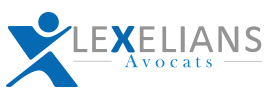How to optimize the financial management of a condominium: strategies and best practices

Introduction
The financial management of a condominium is at the heart of its operation. A healthy cash flow ensures that work can be carried out, common areas maintained and legal obligations met. But how can you ensure optimal management? This article offers practical advice on how to improve your condominium's financial management, whether you're a syndic, a member of the management board or a condominium owner.
I. The basics of condominium financial management
To optimize finances, it's essential to understand the basics of financial management in condominiums.
Key accounting documents
- Budgeting: a key tool for planning expenses.
- Revenue andexpenditure account: shows actual income and expenditure.
- Cash calls: the main means of collecting expenses.
The Rules Imposed by Law
- Obligation to keep accounts in compliance with the decree of March 14, 2005.
- Separate accounts: each condominium must have a dedicated bank account.
The role of the managing agent in financial management
- Drawing up budgets and calls for funds.
- Presentation of annual financial statements to co-owners.
II. Diagnose the financial state of the condominium
Before optimizing, we need to identify the weak points in current management.
Financial analysis
- Review of fixed and variable costs.
- Evaluation of non-essential or disproportionate expenses.
Key indicators to track
- Expense recovery rate.
- Level of unpaid bills and their impact on cash flow.
- Evolution of annual expenses.
Financial Audit
- Call in a chartered accountant to assess management.
- Identify areas for improvement.
III. Setting up a realistic budget forecast
Budgeting is the cornerstone of effective financial management.
Defining priorities
- Identify unavoidable expenses (maintenance, urgent work).
- Medium- and long-term investment planning.
Avoiding overvaluation
- Limit excessive increases that could burden co-owners.
- Calculate expenses as accurately as possible.
Integrating Prevention Funds
- Set up a works reserve fund, mandatory since the Alur law.
- Anticipate unforeseen expenses.
IV. Improving load management
Controlling expenses is essential to optimizing financial management.
Pooling of services
- Consolidate contracts to benefit from economies of scale.
- Negotiate with service providers (insurance, cleaning companies, etc.).
-
Reducing energy costs
- Invest in energy-saving equipment (LED lighting, insulation).
- Encourage energy renovation to reduce heating bills.
Regular expenditure monitoring
- Set up a dashboard to monitor discrepancies between budget and actual expenditure.
- Quickly identify financial irregularities.
V. Preventive strategies for recovering unpaid debts
Overdue payments are one of the main causes of financial imbalance in condominiums.
Anticipating non-payment
- Automatic reminders before due dates.
- Raising condominium owners' awareness of the importance of paying utilities.
Establish a Rigorous Process
- Prompt formal notice as soon as the first delay occurs.
- Initiate legal proceedings if necessary.
Support for Co-owners in Difficulty
- Suggest payment schedules to spread out payments.
- Refer co-owners to available financial assistance.
VI. Strengthening transparency and co-owner involvement
Good management also requires effective communication.
Financial Transparency
- Clear presentation of accounts at annual general meetings.
- Online availability of accounting documents.
Involving the Syndical Council
- Involve union council members in financial monitoring.
- Organize regular meetings to review the situation.
Co-owner Financial Education
- Explain the financial mechanisms of co-ownership.
- Remind us of the importance of sound building management.
VII. Using digital tools to optimize management
Digitization is a powerful lever for improving financial management.
Accounting software
- Automate tracking of expenses and calls for funds.
- Facilitate the generation of financial reports.
Collaborative Platforms
- Enable co-owners to access their accounts online.
- Simplify dealings with the building manager.
Forecasting tools
- Use simulators to anticipate future financial needs.
- Work and investment planning.
Conclusion
Optimizing the financial management of a condominium requires a proactive, structured approach. By controlling expenses, improving cost recovery and enhancing transparency, it is possible to guarantee a healthy cash flow while preserving harmony between co-owners. Investing in digital tools and promoting clear communication are major assets in achieving this.

